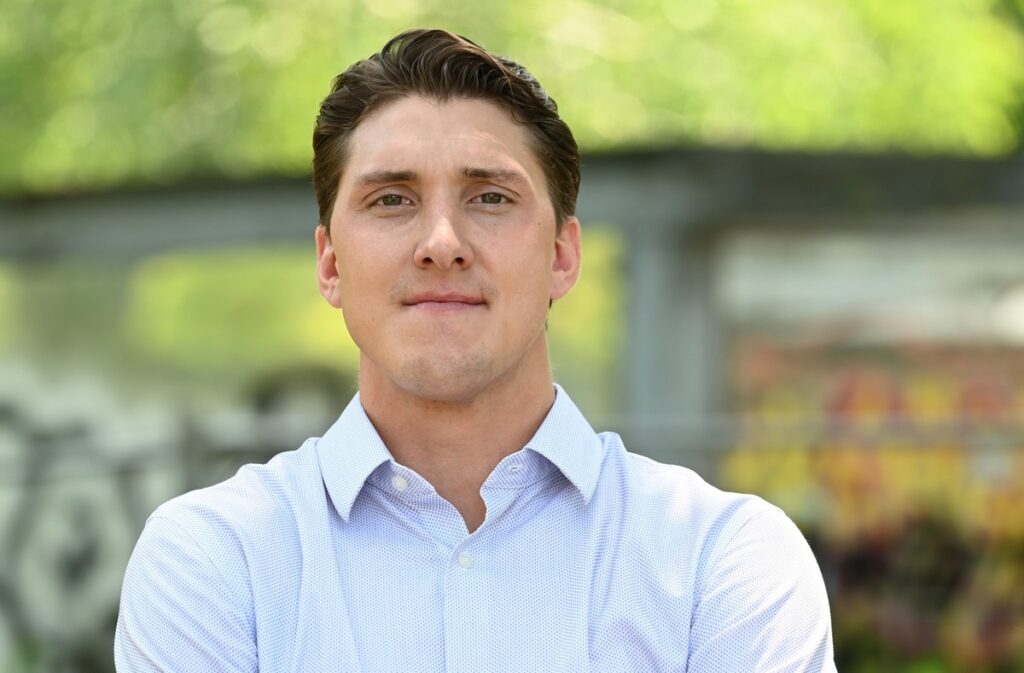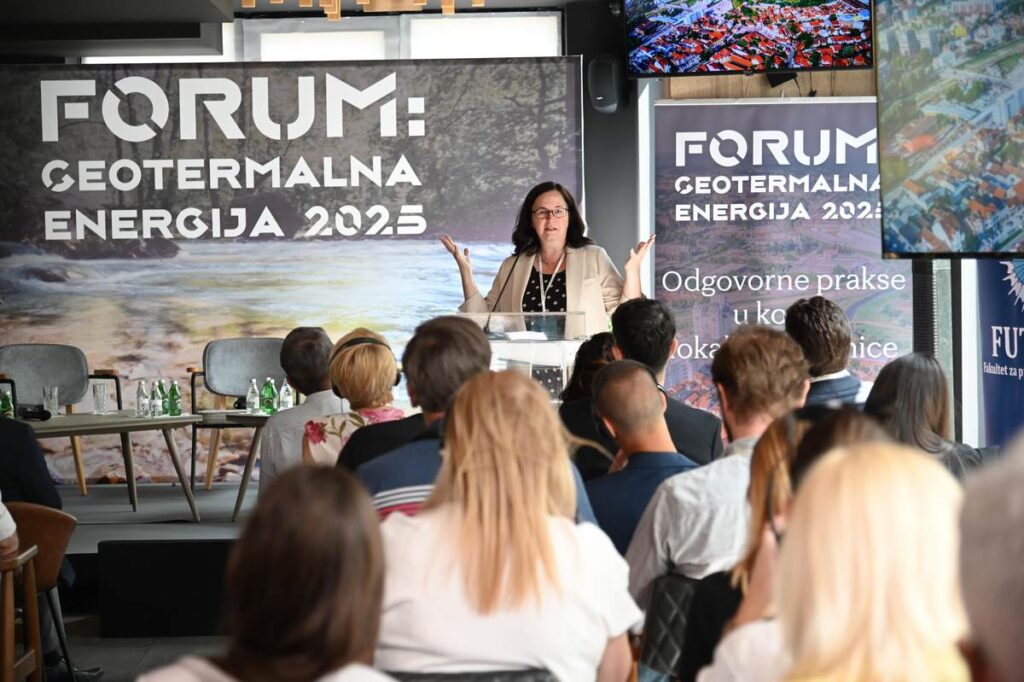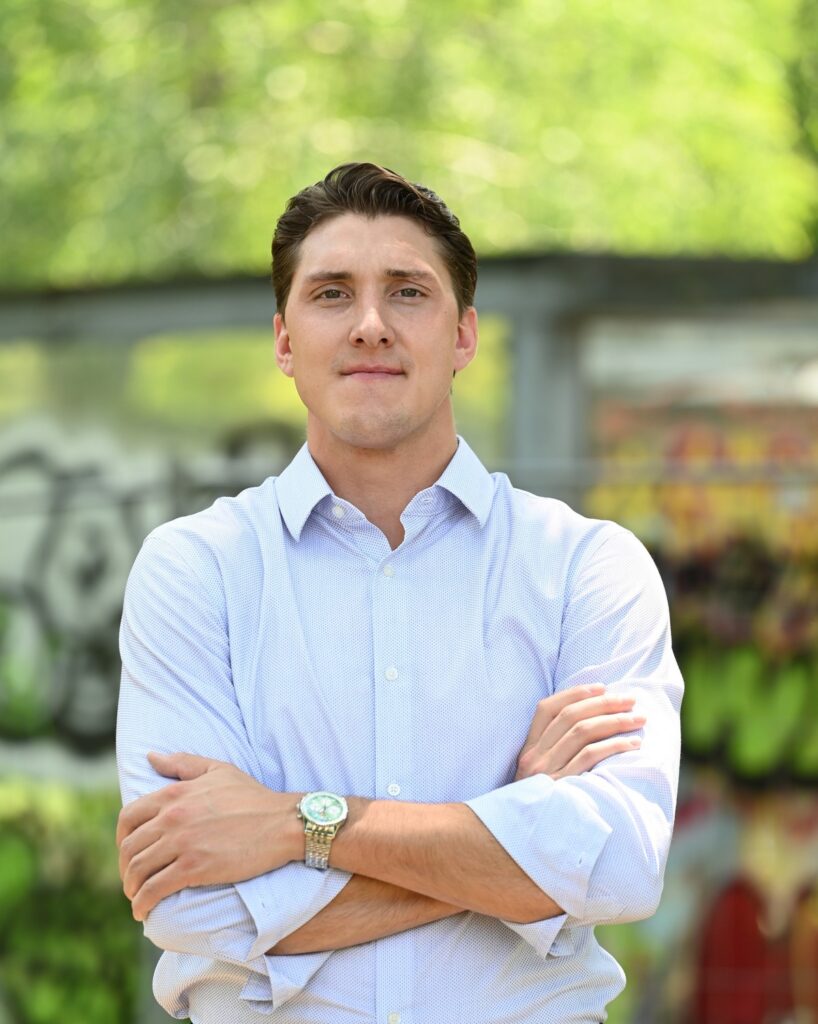Harnessing Serbia’s untapped geothermal wealth to fuel a cleaner, more resilient energy future

Although Serbia possesses one of the highest geothermal potentials in Europe, this renewable resource remains significantly underutilised in its national energy mix. In this interview, Alexander Palkovsky, Vice President of the Palkovsky Group, shares insights into Serbia’s geothermal landscape, its role in the broader energy transition, and the company’s vision for Valjevo – a region with considerable natural resource potential and strong ambitions for sustainable development.
What motivated you to invest in Serbia, and what values do you carry as a family-owned company in your business?
Our investments in Serbia have been driven by a combination of “win-win-win” opportunities, shared family values, and a strong connection to the region. My father, Petr Palkovsky, Founder of the Palkovsky Group, and I share a strong belief in ethical, transparent, and sustainable business practices. We are committed to ensuring that every project delivers value not only economically, but also socially and environmentally.
When my father shared with me his objectives and vision for Serbia, I recognised a unique opportunity to contribute to the green transition in a region closely tied to our heritage. With my experience in renewable energy, I decided to join him in advancing the company’s projects in Serbia.
At Palkovsky Group, we have built a team of leading experts in geology, engineering, energy and hydrogeology – professionals who bring not only deep expertise but also a strong commitment to our shared values. Their integrity and dedication ensure that our projects are conceived and executed with the environment and society atop of mind.
Geothermal energy is often called the “silent hero” of the energy transition. How do you see Serbia’s potential in this field?

Serbia holds enormous, yet largely untapped, potential in geothermal energy. With over 360 identified thermal water sources across the country – the majority of which remain unused for energy purposes – the opportunity is clear. Remarkably, Serbia ranks fifth in Europe for geothermal potential, yet its contribution to the national heat supply is minimal.
Our goal is not to displace existing energy sources, but to enhance the diversity and resilience of Serbia’s energy mix. Geothermal energy offers a domestic, renewable, and stable source of heat – one that can complement other solutions, reduce pollution, improve energy efficiency and the quality of life of everyday citizens. It uses safe, proven technology, which is closed-loop and poses little risk relative to other sources of energy.
Beyond district heating, geothermal energy can also support agricultural production through year-round greenhouse operations and contribute to the development of health and wellness tourism, vital for revitalising local economies. Unlike imported fuels, geothermal energy is immune to geopolitical volatility and price fluctuations. It is a strategic resource beneath our feet, and we believe it can play a complementary role in Serbia’s energy future.
How do you plan to conduct geothermal research, and how do you intend to use those resources in Valjevo?
Our approach is structured and phased, starting with exploratory studies conducted in collaboration with local experts and institutions. The first phase focuses on geological research and feasibility analysis. Should the results prove favourable, from economic, environmental, and social standpoints, and with support from the local community and authorities, we will progress to the development and utilisation phase.
Leveraging our in-house experience in renewable energy, we will lead the process end-to-end – from exploration, to feasibility, to implementation. I would like to highlight the exceptional expertise of key members of our executive team, including Mr. Rob McCurdy, ICD.D, Chairman of the Palkovsky Group, with over 30 years of global leadership in energy, infrastructure, and resource sectors, and Mr. Adnan Khan, P.Eng., our Chief Operating Officer, who brings decades of experience managing important sustainability-focused projects worldwide.
Transparency is central to our work. The citizens of Valjevo will be continuously informed of research progress, findings, and projected outcomes. This is not a top-down initiative – it is a collaborative process with the local community at its core.

How could the implementation of geothermal energy impact pollution and heating costs in Valjevo?
Valjevo has faced persistent challenges with air quality, especially during the winter months. In a study we commissioned in 2022, five high-potential geothermal zones were identified by the University of Belgrade’s Laboratory for Geothermal Energy, including one located beneath the city’s heating plant. This opens the possibility for relatively simple integration of geothermal energy into the existing district heating system.
Our intention is not to dismantle current infrastructure but to strengthen and diversify it. Geothermal energy could support seasonal demand, particularly during transitional periods, and complement fossil fuels for baseload heating needs, while ensuring reliable service.
This is a proven technology, widely used in similarly sized European cities such as Munich, Germany. Utilising domestic heat sources can reduce public expenditures, lower energy costs for residents, and significantly cut emissions over time. We believe that geothermal presents a “win-win-win” opportunity for Valjevo and Serbia.
In June, the Forum on the geothermal potential of Valjevo and Serbia was held in Divčibare. How important are such events for raising awareness and accelerating the energy transition?
The Forum in Divčibare served as a vital platform for dialogue among local government representatives, international diplomats, investors, and energy experts. It was an honour to welcome respected guests, such as H.E. Michelle Cameron, Ambassador of Canada to Serbia, H.E. Jan Bondy, Ambassador of the Czech Republic to Serbia, as well as Mr. Đorđe Milanović, Deputy Mayor of Valjevo and Mr. Aleksandar Ljubić, Executive Director of the Foreign Investors Council.
Their presence underscored that Serbia’s energy transition, both locally and nationally, enjoys domestic and international backing and must be pursued with transparency, professionalism, and public benefit in mind.
Events like these are essential. They build bridges between municipalities and foreign embassies, academia and business, policymakers and engineers. Constructive dialogue is key, and the Divčibare Forum demonstrated that Valjevo is prepared to participate in and lead that dialogue.
What are the following key steps to realise the geothermal potential in Valjevo?
If our timeline proceeds as hoped, geothermal heat delivery for Valjevo could begin within two years in time for Expo 2027 – an ambitious but achievable goal.
In the interim, it will be necessary to complete various studies, compile technical documentation, engage Serbia’s expert community and establish the form of partnership with the Valjevo Municipality to access the existing district heating distribution infrastructure.
Geothermal technology is mature, with many successful reference projects globally, offering us a valuable roadmap. Furthermore, there are many successful examples of public-private partnerships in Serbia, which we can and will refer to going forward.
Our vision is for Valjevo to serve as a national example of responsible and community-driven natural resource development. At the same time, we aspire to contribute to Serbia’s broader energy mix — reinforcing national energy security through innovation and sustainability, not in opposition to, but in partnership with, existing energy solutions.